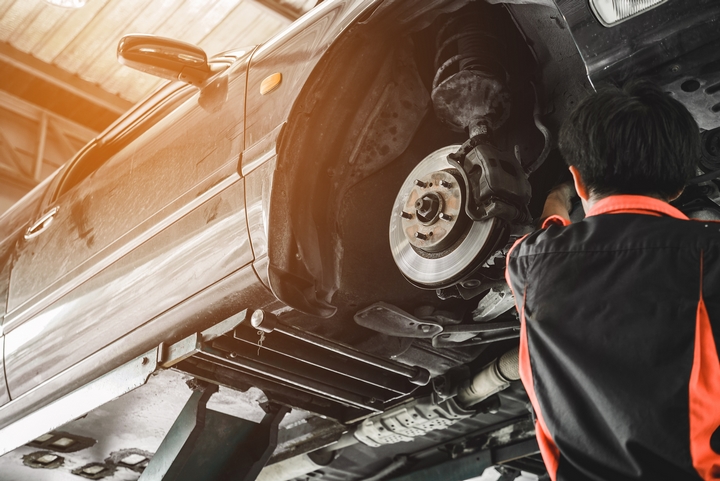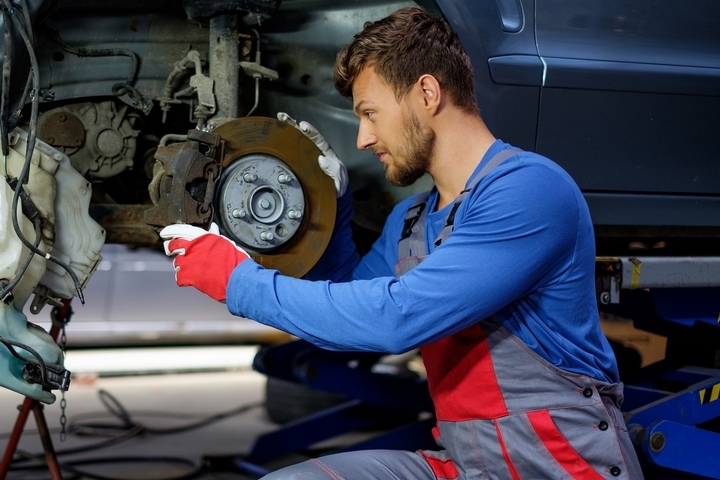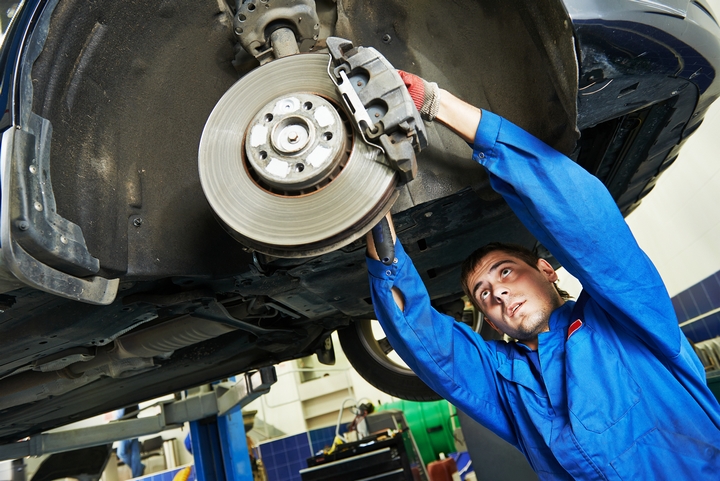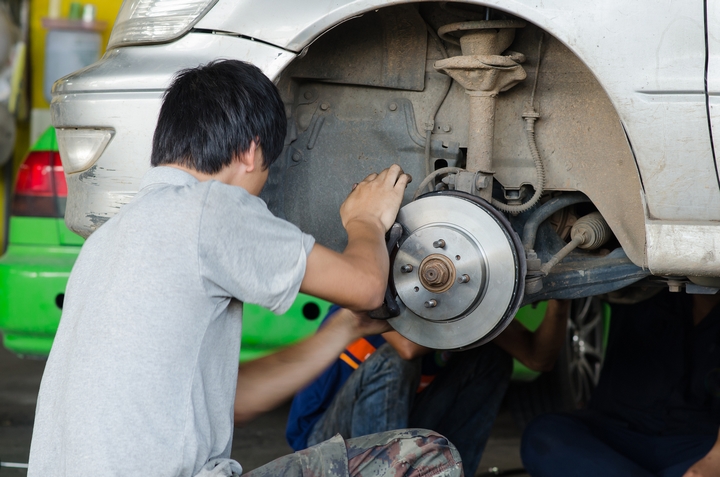5 Maintenance Tips for Your Brake Pads

If you just heard that loud, obnoxious, and annoying metal screeching sound, then it is perhaps time to take a look at your brake pads.
When was the last time you had them replaced? Better yet, when was the last time you inspected your brake fluid? If it’s been a while, then perhaps you need to embrace a new plan to caring for your brake pads.
Don’t know where to begin? We’re here to help.
Here are five maintenance tips for your brake pads:
1. Inspect Your Brake Pads Regularly

One of the best ways to care for your brake pads is to inspect them on a regular basis.
By keeping an eye on your brake pads, you can determine if you need to do a better job of maintain them, if they need to be replaced, or if they need to be seen by a mechanic.
You don’t need to inspect your brake pads every single time you drive, but a weekly basis would suffice to ensure that you’re not going to be stuck without working brake pads.
2. Have You Checked Your Brake Fluid?

Here is a question: when was the last time you checked your brake fluid? If you don’t even know what brake fluid is, then that perhaps is a bad sign.
That said, here are a few things you need to know about brake fluid:
- The brake fluid should stand at an appropriate level and look clean.
- Change your brake fluid if it has a milky colour.
- You will need to add new fluid into your master cylinder.
- If you’re a grease monkey then you could also bleed your brake line and pour a fresh amount of fluid.
These are the rudimentary measures of brake fluid.
3. Notice the Signs of Brake Pad Replacement

No matter how often you have inspected and cared for your brake pad, it just needs to be replaced. But how exactly do you know when it needs to be changed?
Well, here are a few things to consider when contemplating on replacing brake pads:
- Do you hear that metallic screeching when you hit the brakes?
- Is your car shaking or grinding when you hit the brakes?
- How much brake dust is there on your brake pads?
- Grooves and rough spots? You may need to replace the rotor.
- Less padding on your brake pads may require replacement.
By noticing these signs, you can then take the appropriate measures of replacing your pads.
4. Be a Better Driver

Oftentimes, the best way to maintain your brake pads is to be a better driver. Although we agree that you are a magnificent motorist, everyone can always improve upon their driving skills.
Who knew that driving better can help your brake pads?
Well, they can, and here’s what you can do:
- Slow down a bit and stop speeding too much.
- Coast your way on the highway; stick to a speed.
- Look far ahead and prepare yourself and your car.
- Did a driver four cars ahead slam the brakes? Don’t follow the herd.
- Shed some of the weight in your car.
These may seem unnecessary, but they can contribute to the longer lifespan of your brake pads.
5. Stick to the Maintenance Schedule

Every owner’s manual will have a maintenance schedule that you should adhere to. By sticking to the maintenance schedule, whether it is for your brakes or engine, you can ensure that you won’t get stuck in the middle of nowhere or that your car will break down.
Many motorists neglect this crucial piece of advice, but it can save you in the end.
Brake pads are essential for a worry-free and safe drive from point A to point B. Not only are they critical to your car, they can be expensive to repair or replace – not to mention the time it takes to perform the replacement. By properly maintaining your brake pads, you can avoid the hassle and headache that often comes with having to replace your brake pads every few months.
